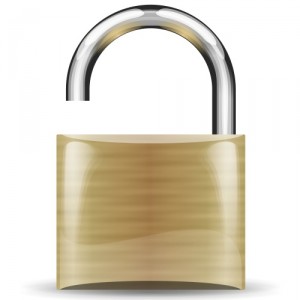 Summary. This year has been busy for anyone involved in computer support and security.
Summary. This year has been busy for anyone involved in computer support and security.
Hijacked Computers. Computers are being taken over by viruses that turn them into remote controlled drones. In one group alone, more than 4.5 million computers that have been hijacked by hackers for their use. This is just one of many groups of drone computers being used as an army to conduct cyber warfare and cyber terrorism. Because these networked armies of zombie computers are self healing and self replicating, security analysts believe it may be nearly impossible to destroy them.
Computers and Accounts Hacked. About 90% of all companies say they’ve been hacked and over 22 million people have now had their online accounts hacked. These are only the known incidents of security breaches.
Better Security Guidelines. Given the current climate of security instability, here are some suggestions for better security.
1. Password Security. Use a password vault program such as CallPod Keeper to securely store your passwords. This will allow you to easily use different passwords for every account you have, and also use more complex (strong) passwords. Some password storage programs include automatically generated random passwords. If you’d prefer to keep a simple written list of passwords, then use a coding system that only you know. Here are some methods to create strong passwords that are easy to remember:
- One method of creating an easy to remember, but complex passowrd is the formula Word + Interlaced Numbers = Password. So, using this formula, your password could be dolphin + 1234 = d1o2l3p4hin. All you would write down would be dolphin 1234. Nobody would know what the password is without the awareness of the interlacing system you’re using.
- Another option would be Word + number + word = password. So, your password could be cricket491sunrise. Using words that have no association is probably better. Including upper and lower case is better. You could just write down the words without the number and let the number be a key you memorize.
- Another option would be keyboard patterns. The pattern of qwerty is overused as a password and therefor not secure. However, other variations such as qazwsxedcrfv can be easy patterns for you to visually remember and type, yet not likely to be guessed by a brute force password guessing system. These are easy to type, and because they area based on patterns in visual space they can be easier to remember.
- Another option would be to combine languages utilizing the above systems. So, a basic brute force password guessing system would need to use multiple language dictionaries.
- Another option is to spell words backwards. So, your password list would be incomplete until the words were reversed.
2. The Cloud. Don’t leave large amounts of confidential data stored in the cloud. Instead, archive data into folders by year and store duplicate copies of those folders in redundant hard drives that are stored in different locations. Reducing the amount of information in the cloud can help reduce your exposure. Data in the cloud is typically synchronized back to your computer, so injected viruses and other undesirable content can be pushed from a hacked cloud account back into your computer. Online storage is useful for exchanging files, and working on shared files, but it’s best to keep files limited.
3. Remote Access Software. Remote access software, such as GoToMyPC or LogMeIn is very helpful when providing remote computer support. It’s common for technicians to leave such programs running by default and loading on startup. This creates a moderate security problem, since it could be possible for someone to try hacking into the computer. Typically such programs allow the remote user to save the password online. This creates an even greater security threat because if the account were hacked into, then all those remote computers could be accessed. So, a best practice is to only load remote support software on an as needed basis and don’t save passwords in any online account. For more information, read Best Security Practices for TeamViewer, GoToMyPC, LogMeIn, and other Remote Computer Access Support Software.
4. Backups. Computers continue to be susceptible to hardware failures and corrupted system files. So, maintaining a backup is essential. Most modern operating systems like Windows 7 and Apple OS X provide adequate backup software.
